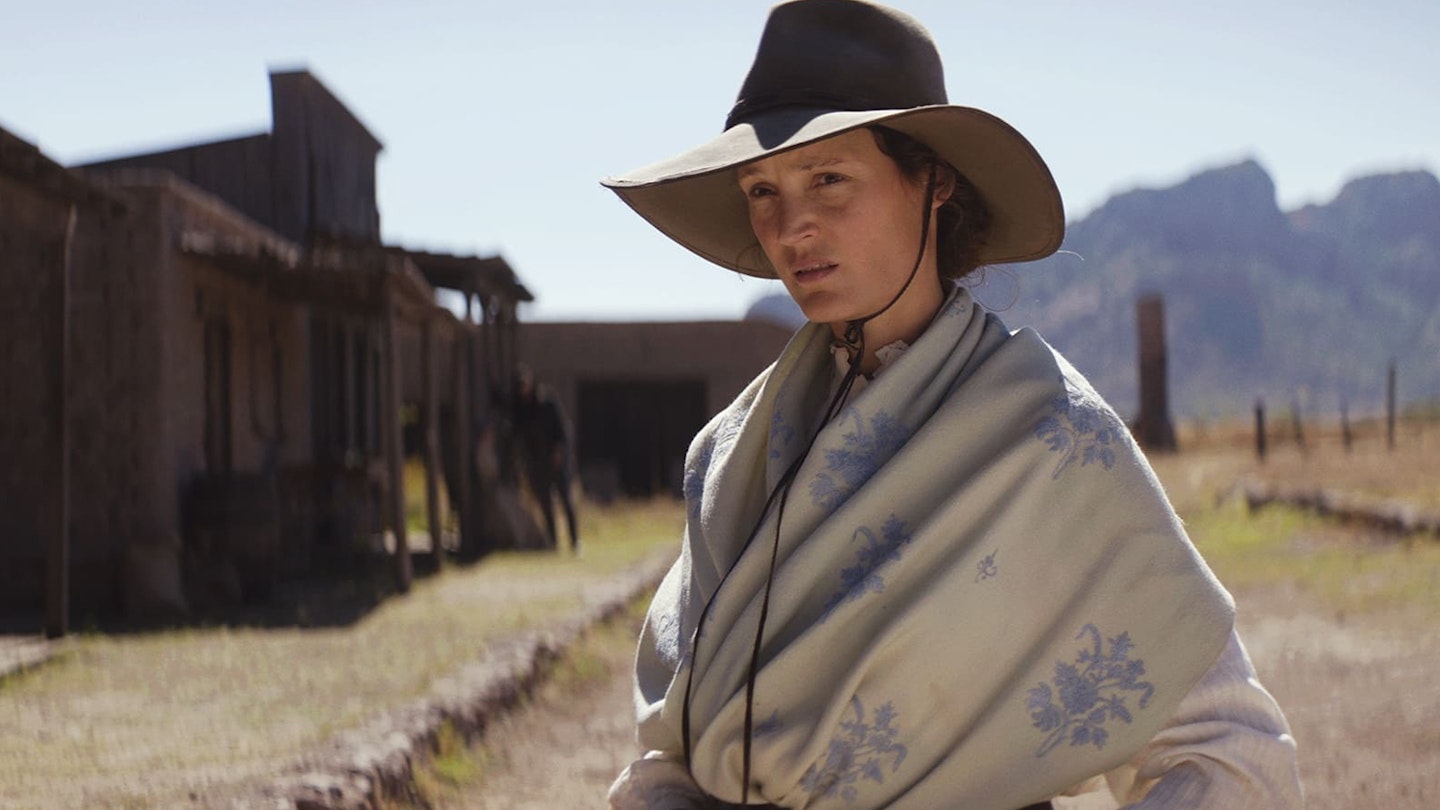It’s not unusual for a Western to open with a figure on horseback. However, in Viggo Mortensen’s second feature as director (and writer, and composer), that figure does not wear a Stetson but rather a metal visored helmet, and is clad in plate-mail armour. It’s a surprising and striking image: a chivalric knight of medieval legend, trotting through a primeval forest. And it is our first clue that Mortensen’s take on a later but no less mythologised historical period — the Wild West — will be of a distinctly different flavour to most other horse operas.

Not that that stops Mortensen from playing with its popular archetypes. His knightly vision (and it’s no spoiler to say that it is a vision) is swiftly followed by a shoot-out which spills from a saloon in a familiarly dusty frontier town, perpetrated by a killer who literally wears a black hat. There is talk of manifest destiny and progress, and some examination of the immigrant experience at the fringe of society. Plus, significantly, the story climaxes with a violent confrontation fuelled, apparently, by revenge. But, for the most part, The Dead Don’t Hurt is concerned with the more positive motivations of acceptance, forgiveness and love. Despite a few brutal outbursts (in one plot-hinging case, disturbingly so), this is for the most part a remarkably gentle film.
Vicky Krieps and Viggo Mortensen make a convincing and engaging couple
At its tender core stands Vivienne Le Coudy (Vicky Krieps), a French-Canadian florist who gives up her life in San Francisco being droned at by her haughty suitor to settle in Elk Flats, Nevada, with Danish ex-soldier Holger Olsen (Mortensen), after they pretty much fall in love at first sight. Vivienne is no less determined and independent than her ruggedly individualistic lover, and their relationship is presented as a union of equals. Krieps and Mortensen make a convincing and engaging couple, though after Holger heads off to “fight against slavery” in the Civil War, the film is carried by Krieps, as Vivienne must deal with the predatory attentions of the previously mentioned black-hatted no-gooder: a powerful rancher’s spoiled son, portrayed with unredeemable nastiness by Solly McLeod (Tom Jones).
Where The Dead Don’t Hurt comes a little unstuck is in its structure, which stutters through three time-periods. This isn’t to say it’s hard to follow, but the way it suddenly switches from one time to another, sometimes for very brief and incidental scenes, undermines the dramatic momentum. Fortunately, this does not distract irreparably from a solid and heartfelt romantic drama, which takes a primarily emotional approach to its genre revisionism.
